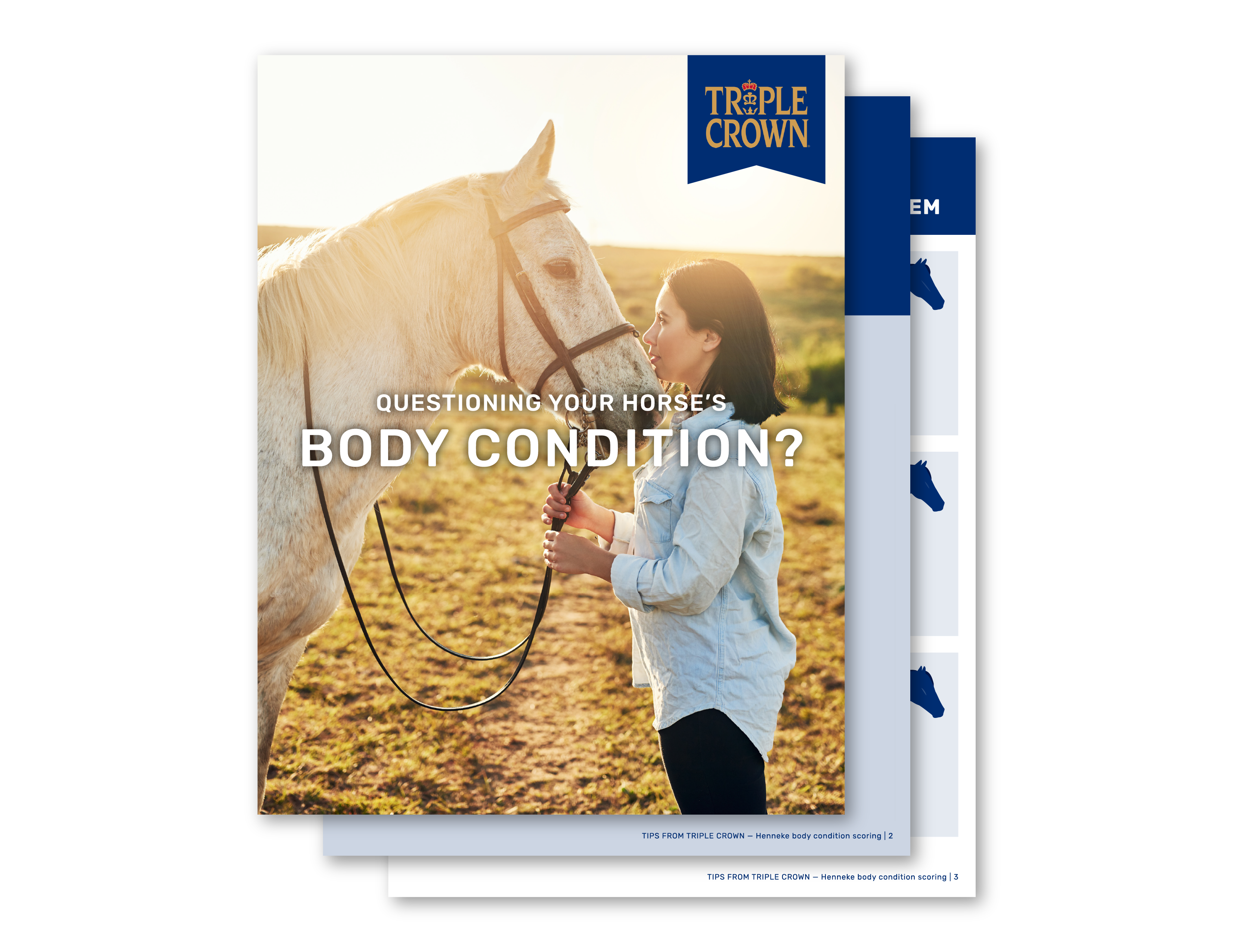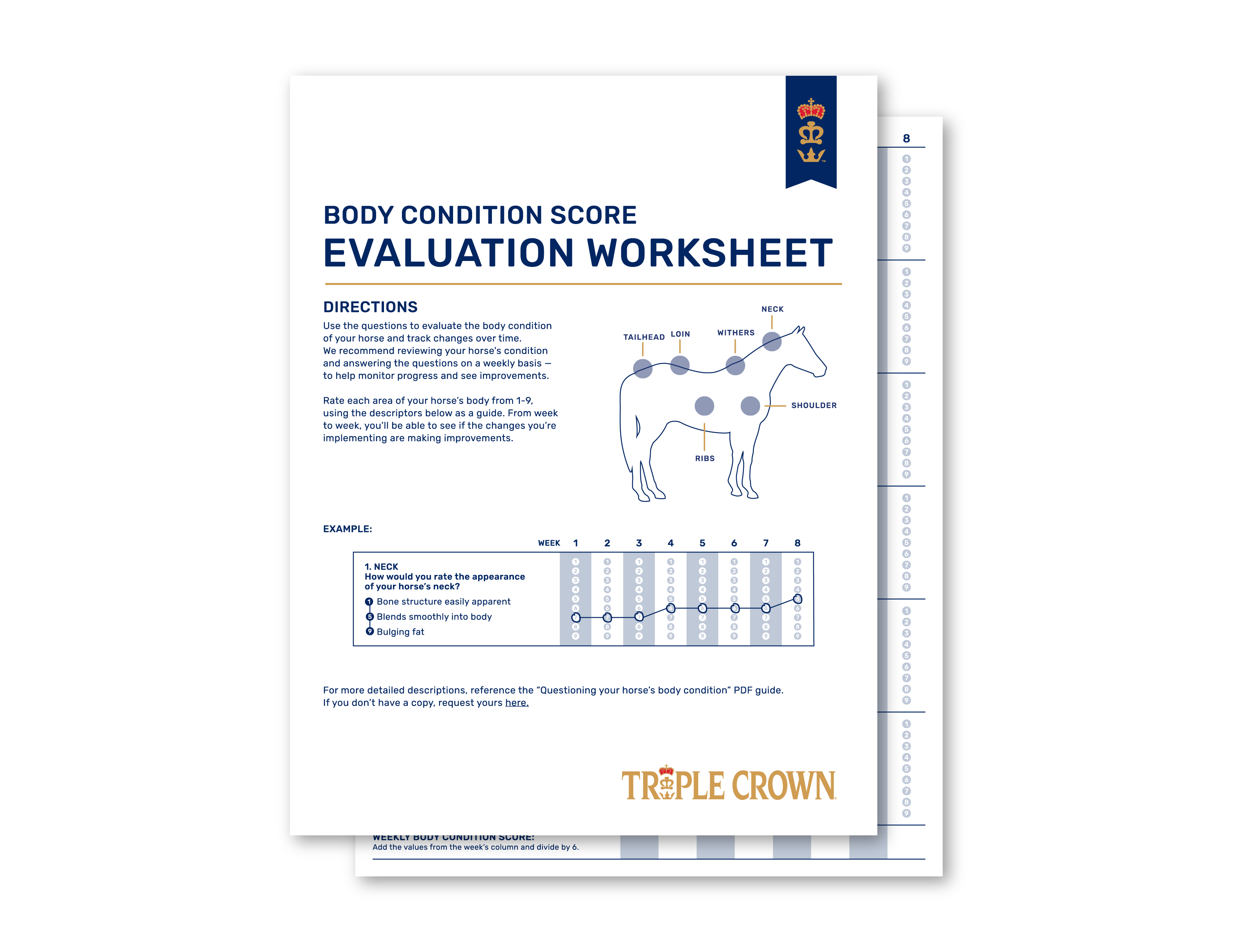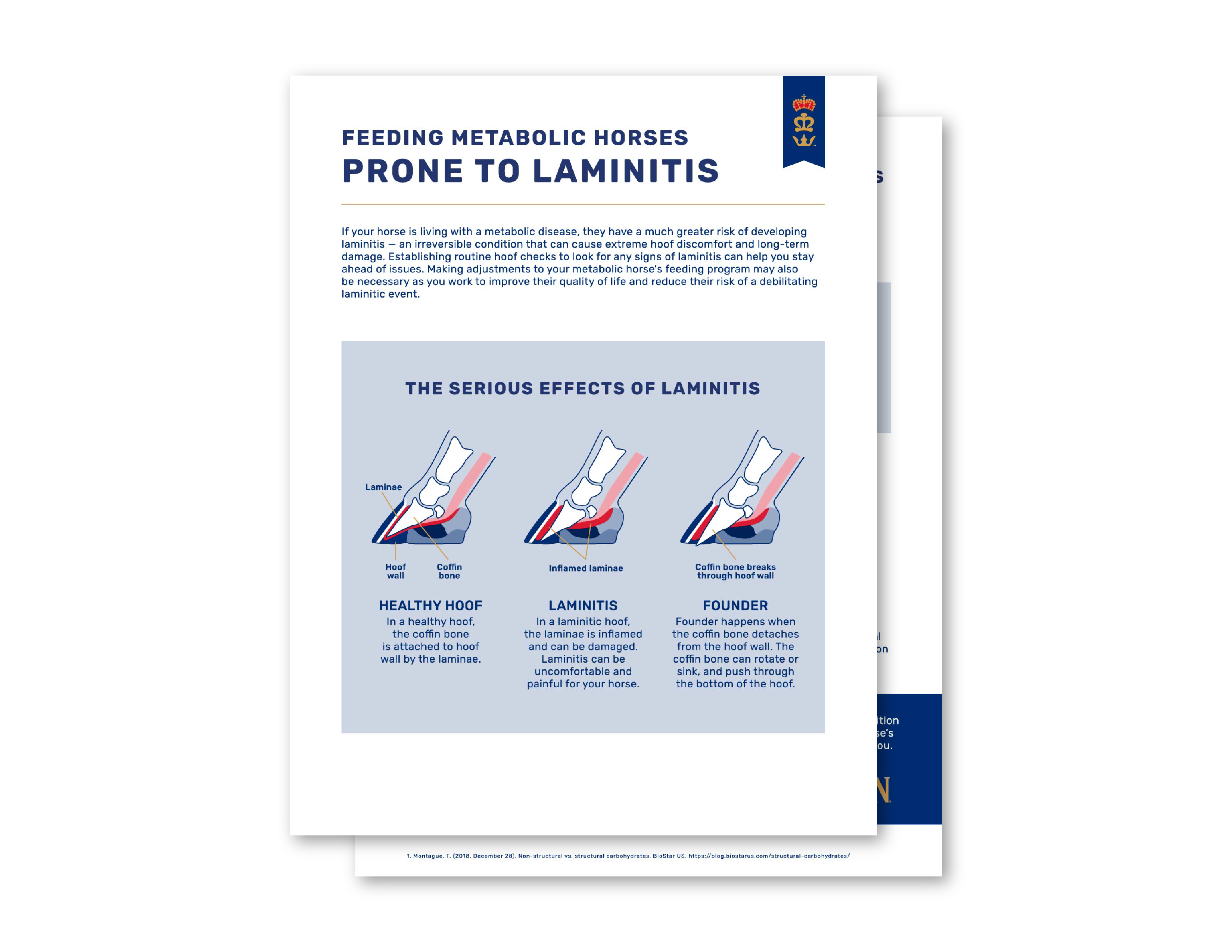Farrier Resources
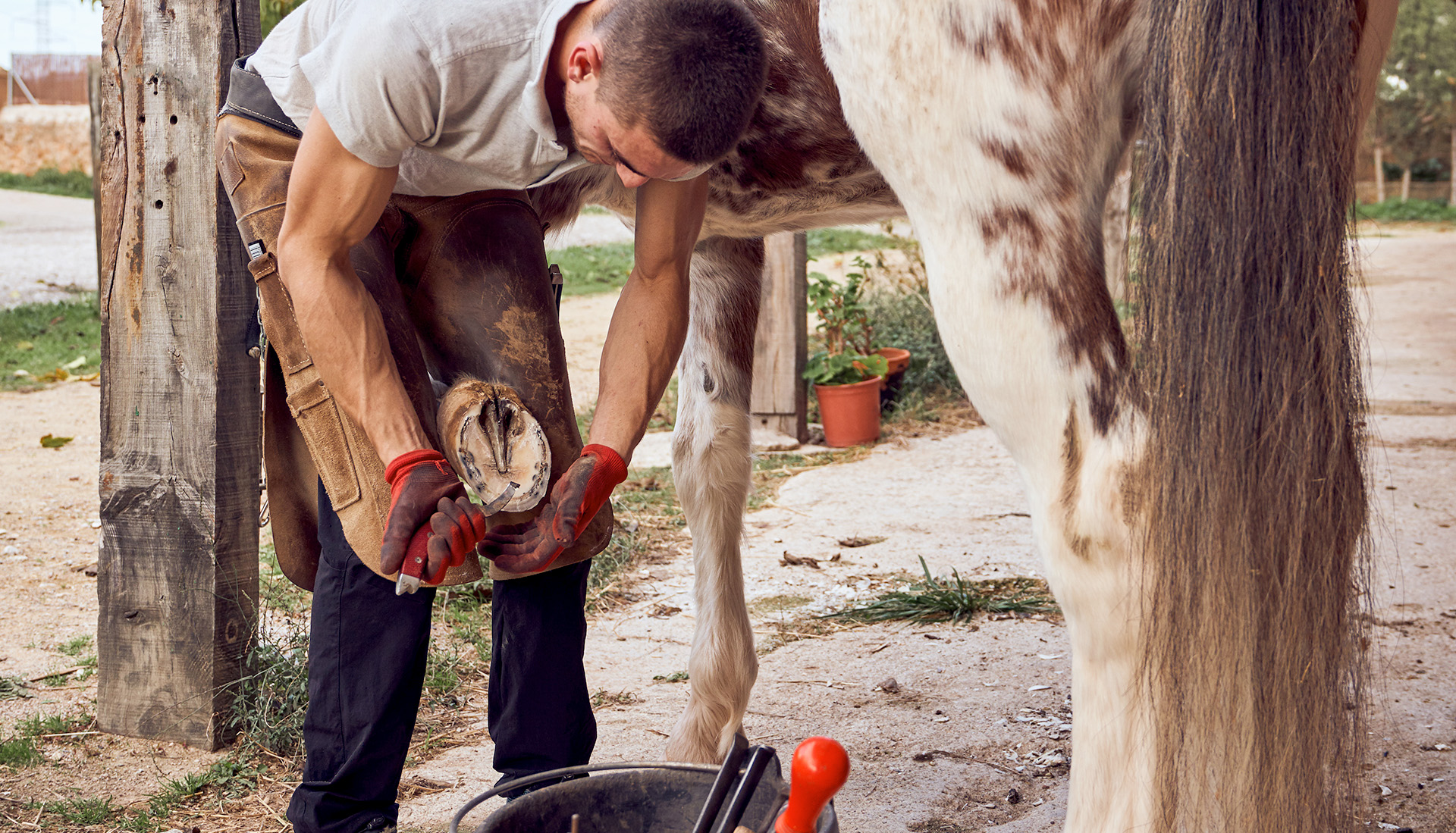
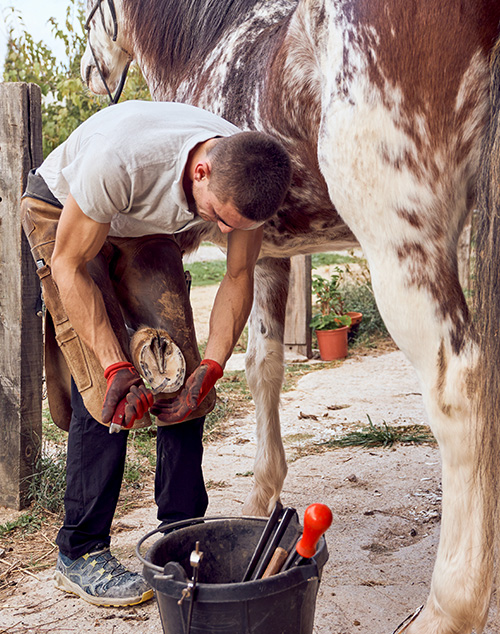
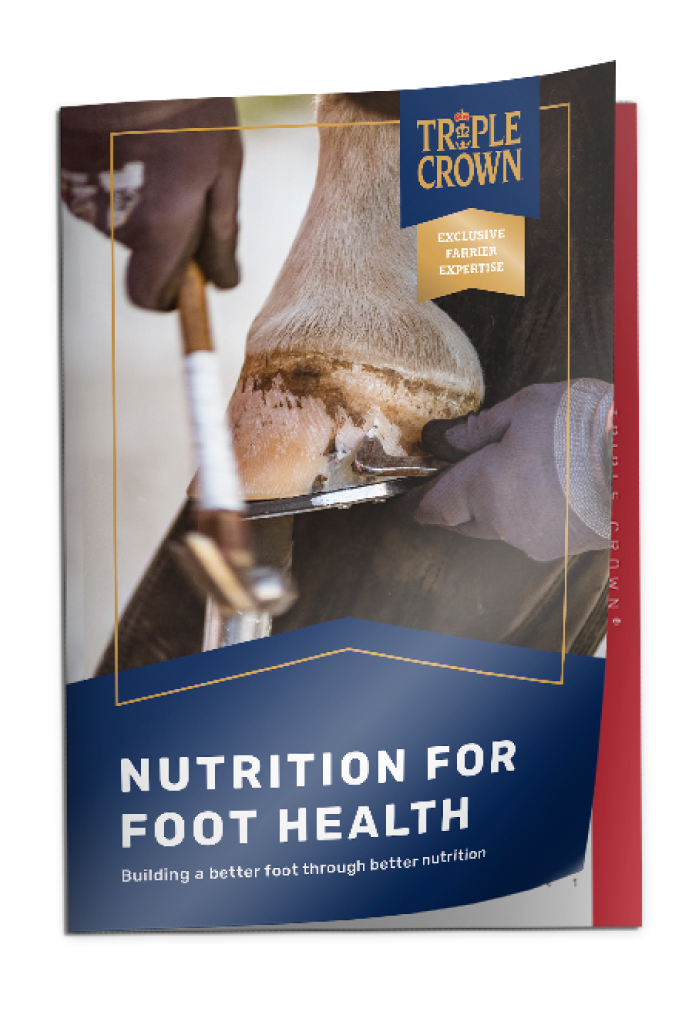
Ebook: Nutrition for foot health
Get access to our exclusive Farrier’s nutrition guide — packed with information to help feet thrive! Inside you’ll find guidance on proper nutrition, and recommendations for supporting common health conditions through diet.
The role of nutrition
In foot health
Foot and hoof quality is influenced by a variety of factors including genetics, activity and care. Nutritional factors that support growing healthy foot tissue include:
- Corn free formulas
- Fixed formulas — formulas list specific ingredients to ensure consistency, batch-to-batch
- Low NSC options — balancers, complete feeds and forages
- EquiMix® to support a healthy microbiome — yeast cultures, organic minerals, prebiotics, probiotics and enzymes
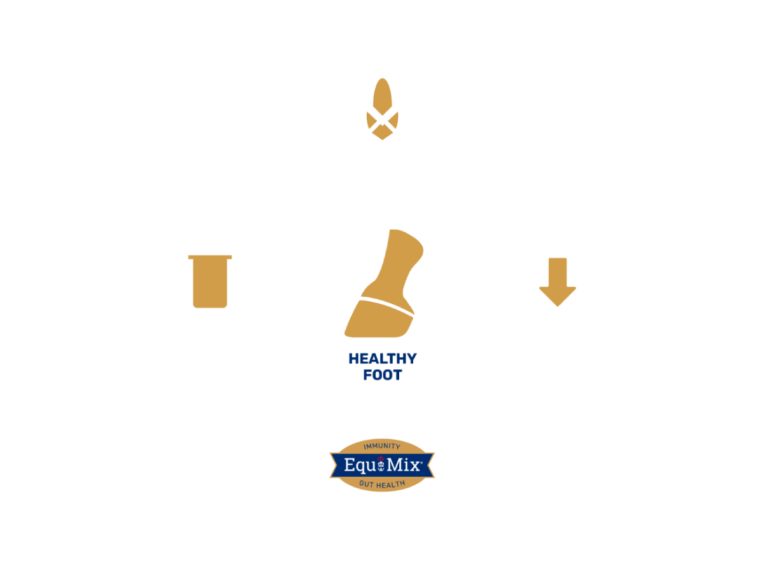
Support horses with common health issues through nutrition
Laminitis
Control soluble carbohydrate intake and provide additional calories from fat and digestible fiber sources. Limit pasture consumption during spring and fall seasons due to high levels of plant starches and sugars.
Recommended Triple Crown products:
• Senior, Senior Gold, Senior Active+, Low Starch for harder keepers
• Balancer, Lite for horses with excessive body condition/easy keepers
• Safe Starch® Fortified Forage
Cushings/equine metabolic syndrome
Horses with Equine Cushings Disease (PPID) may be insulin resistant with elevated blood glucose and/or blood insulin levels. Feed a low soluble carbohydrate (starch + ESC) diet fortified with high levels of antioxidants (Vit E, C and organic selenium) to horses with Equine Metabolic Syndrome (EMS) to support immune system function. In severe cases where horses may have laminitic episodes, a dietary soluble carbohydrate level of 10% or less (hay & feed combined) is suggested.
Recommended Triple Crown products:
• Low Starch
• Senior Gold, Senior Active +, Senior for harder keepers
• Balancer, Lite for easy keepers
• Safe Starch® Fortified Forage
Insulin resistance
Insulin resistance (IR) is the failure of body tissues to respond as expected to the hormone insulin. Insulin is released after blood sugar (glucose) is high, such as after eating, to stimulate the uptake of glucose by tissues. IR occurs when the cells become less sensitive to insulin thereby limiting the uptake of glucose, thus limiting the availability of energy to cells. Daily exercise (approx. 30 minutes each day) will help with weight loss in conjunction with a review of the diet. Hay should be tested to determine nonstructural carbohydrate level. Hay can be soaked for 30 minutes to remove some of the sugar (drain water before feeding). Ration balancers are a good choice for easy keepers, providing the necessary nutrients without excess calories and soluble carbohydrates.
Recommended Triple Crown products:
• Balancer
• Lite
• Safe Starch® Fortified Forage
• Timothy Balance® Cubes
Leaky gut syndrome
Leaky Gut Syndrome occurs when the lining of the gastrointestinal tract is compromised, allowing harmful pathogens or toxins to cross the intestinal barrier and be absorbed into the bloodstream. This ‘leak’ into the bloodstream will cause intestinal inflammation, resulting in various systemic problems. Stress is a major factor contributing to Leaky Gut (stress from environment, trailering, competition, changes in diet, etc.). Signs of Leaky Gut may include behavior changes, poor performance, weight loss, skin allergies, loose manure, colic, laminitis. Feed nutrients that support gut health—ButiPEARL promotes intestinal barrier health and CLOSTAT, a patented strain of Bacillus Subtilis, inhibits pathogen growth and restores the microbial balance.
Recommended Triple Crown products:
• Any feed
• Safe Starch® Fortified Forage
• StressFree® Fortified Forage
Additional resources
Head to our horse health page to access useful downloads, articles, worksheets and more.
